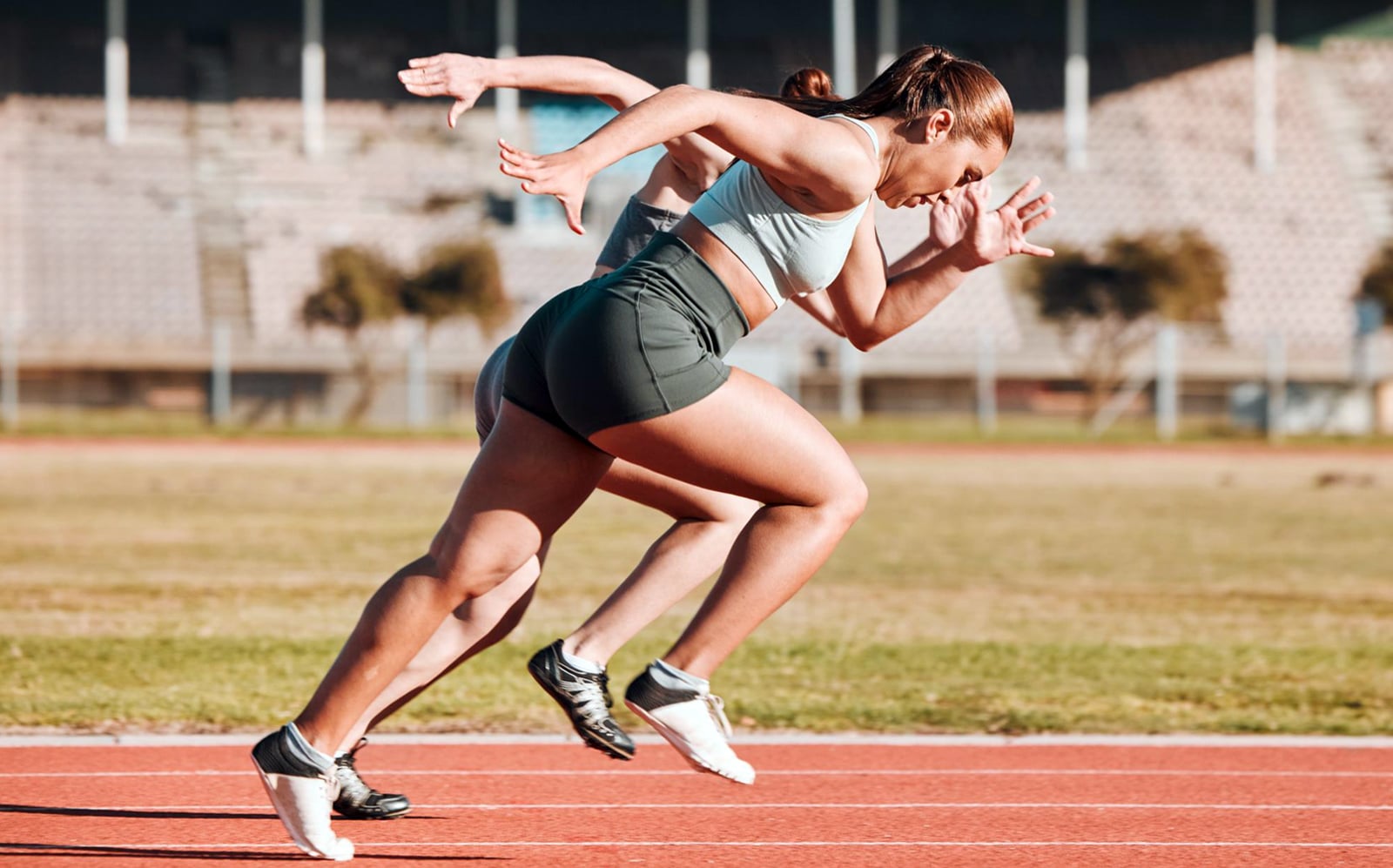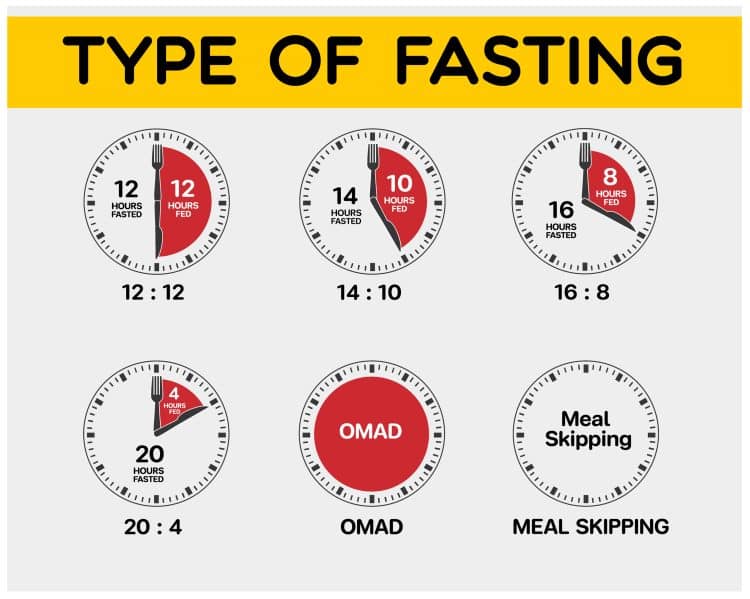If you measure your daily calorie intake like your life depends on it, then, in all probability, you understand the importance of food and dietary choices to achieve your fitness objectives.
Intermittent fasting is one of the most popular dieting trends that has caught the fancy of human imagination in recent years, especially in the context of alleged sports and athletic performance benefits.
As an intermittent fasting veteran, I have been exploring how IF can improve my sprinting skills. While IF is working well for me, it took considerable time to stride towards my health goals.
Calculate Your 5:2 Fast Day Calories
Get your personalized calorie targets for fast days and normal days on the 5:2 intermittent fasting diet.
Calculate My 5:2 Plan →Here’s what you can expect to be covered in the article: what intermittent fasting is, the science behind it, the correlation between athletic performance and fasting, and all the things to keep in mind to make fasting work for your athletic needs.
Intermittent Fasting and Athletic Performance: The Correlation
While research claims varied benefits of intermittent fasting, it is essential to understand if the same benefits apply to athletes aiming to improve their performance. (2)
Well, this is a subject where several studies have shown different results, sometimes with even conflicting outcomes.
For instance, some studies suggest that intermittent fasting may help reduce body and fat mass. However, the same research found the effects of intermittent fasting on muscle strength to be non-significant. (3)
Let’s look at the varying impacts of fasting on athletic performance.
Bodies of endurance athletes practicing intermittent fasting may use fats as their basic metabolic fuel. This differs from non-fasting athletes as their bodies are likely to burn carbohydrates consumed throughout the day.
Novel research findings indicate that following a 16:8 diet may have minimal impact on running performance. However, at the same time, these indicate that such a 16:8 time-restricted diet can be favorable for maintaining a certain kind of body composition without dampening athletic performance. (4)
A trained runner who wants to improve his performance can arguably benefit from reducing fat mass. While intermittent fasting can help with lean mass and fat loss goals and, in turn, enable better athletic performance, there may not be a direct link between improvement in athletic performance and a time-restricted diet. (5)
After 12-36 hours of fasting, some athletes may have lower liver glycogen levels. A drop in glycogen can adversely impact performance as it can cause fatigue and limit the duration for which an athlete can maintain high training intensity.
Athlete performance is influenced by their training intensity, indicating that the effects of intermittent fasting on athletes can vary significantly based on their training regimen.
Some studies indicate fasting for extended periods can increase an athlete’s training duration despite relatively low glycogen levels. However, as low glycogen conditions can trigger mitochondrial biogenesis, it can limit activity levels even when glycogen stores are high.
Things to Consider When Intermittent Fasting as an Athlete
Athletes should be mindful of the following factors before starting an intermittent fasting diet:
Select a Suitable Intermittent Fasting Option
Intermittent fasting allows you to choose a suitable eating and fasting split, making it one of the most flexible diet methods. Every athlete may have a different performance goal that requires different levels of dedication and time investment. With intermittent fasting, you can select a preferred fasting window to manage your body weight and performance.
Plan Your Meals
As intermittent fasting is a time-restricted fasting method, athletes must meet their macro and micronutrient needs during the feeding period. Intermittent fasting does not prescribe a diet as such. However, planning and monitoring your diet can help you attain your performance goals.
Unlike people trying to lose weight, reducing overall calorie intake may not be ideal for athletes.
Athletes should focus on meals that provide sustained energy and support their bodies during periods of high-intensity training. You might have to eat bigger meals in a short window, which might not be ideal before a workout. Hence, focus on eating right.
Craig Pickering, the famous English retired sprinter, suggests eating before resistance training and sprints, especially if you undertake high-intensity training first thing in the morning.
According to Craig, you can practice intermittent fasting if you train later in the day and consume enough calories during your feeding window.
Athletes with endurance goals should prefer carbohydrate loading.
Research indicates that endurance and strength athletes may need to increase their calorie intake, especially from carbohydrates. It is recommended that they consume anywhere between 1.2 to 2.0 grams of protein per kilogram of their body weight daily. (6)
Generally, the recommended fat sources for all athletes should include olive oil, nuts, seeds, and avocado.
The above-cited study also insists athletes avoid certain foods while intermittent fasting. These include refined carbohydrates and high-fat foods such as cakes, biscuits, chips, and other deep-fried foods. Unrefined carbohydrates such as cereals and wholegrain bread are healthier for athletes during their intermittent feeding window.
Protein for Muscle Recovery
To avoid muscle loss, athletes must consume a protein-rich diet. A protein shortfall can lead to muscle tissue breakdown to compensate for energy needs, increasing your susceptibility to infections and ailments.
Athletes should aim to consume up to 25 grams of protein within two hours after exercise. Spacing protein consumption within three to five hours during your eating window can be beneficial.
Athletes following intermittent fasting plans should allow their bodies more time to recover than their non-fasting counterparts. Moreover, eating through the morning hours, especially when you train, can help enhance your circadian rhythm.
What is Intermittent Fasting?
Intermittent fasting involves restricting calorie intake for a specific period. You can do this in several ways.
While some intermittent fasting methods involve abstaining from food for a certain period daily, other plans comprise fasting every alternate day.
Although there are several categories of intermittent fasting, I’ve highlighted the popular ones to help you understand how it works.
- Alternate Day Fasting: This method requires fasting every alternate day and limiting the calorie intake to 500 calories on the fasting days.
- 16:8 Diet: Requires fasting for 16 hours at a stretch every day with the liberty to eat whatever you want in the remaining eight hours.
- 5:2 Diet: This involves limiting yourself to only 500-600 calories for two non-consecutive days each week. There are no restrictions for the remaining five days.
Science Behind Intermittent Fasting
To understand the full impact of fasting on the human body, especially in the context of athletic performance, let us first understand how the human body produces energy.
For normal metabolic function, our body uses carbohydrate reserves called glycogen to produce energy. This is our body’s primary energy source. However, without enough carbohydrates, the glycogen level decreases considerably, forcing the body to use protein and fat stores to produce energy.
The energy generation process in the human body is complex and involves several phases. The first effect of fasting can be noted after three to eight hours and is known as the postabsorptive phase. (1)
During the above stage, the liver is responsible for secreting glucose in the blood. The body uses fats to maintain the normal metabolic rate as the glucose level falls after a prolonged fasting period. However, the protein breakdown requires 36 hours of fasting.
Most people fast to lose weight. For athletes, however, intermittent fasting has more to do with fitness and improving performance.
Any kind of sport or strenuous activity requires a lot of energy. During intermittent fasting, the body is deprived of its natural energy resource, thereby enhancing cellular efficiency. But whether it eventually boosts athletic performance in the long run remains debatable.
Side Effects of Intermittent Fasting
Intermittent fasting is a safe and effective dieting protocol with minimal side effects. However, you must understand the risks before starting any new diet plan, as it can help eliminate any ill effects.
Here are some potential risks to watch out for:
May Affect Performance
Not eating before high-intensity training, including sprints, weightlifting, resistance training, and other workouts, can hamper performance and interfere with your competition performance.
Not Provide Enough Fuel to the Body
Limiting carbohydrate intake during intermittent fasting will reduce calorie intake and can negatively affect your athletic performance.
A healthy carbohydrate intake is essential in an athlete’s diet as it breaks down into energy to power the body. Restricting carbohydrate intake may not be suitable for all athletes.
FAQs
Can intermittent fasting improve endurance?
Training while fasted might trigger beneficial adaptations, improving performance efficiency in a well-fueled state. However, no scientific evidence proves that fasting can improve endurance levels.
Can I maintain my running performance while practicing intermittent fasting?
You can maintain your running performance while intermittent fasting, provided you take care of your nutritional intake, training, rest, and recovery.
Is it safe to train during the fasting period?
It is safe for athletes to continue training during intermittent fasting. However, you should preferably avoid high-intensity training during fasting as such activities need high energy, and not fuelling your body can hamper performance.
Can I cut down on my carbs during intermittent fasting?
Although reducing carbohydrate intake might appear as a quick way to lose weight for endurance athletes, entirely eliminating it from your diet could harm your long-term training performance. As an athlete, you need more energy from carbohydrates, and hence, you should include healthier carbs in your intermittent fasting eating window.
Conclusion
It would be unfair to typecast intermittent fasting as a boon or bane for athletes. Intermittent fasting could reduce peak performance for athletes engaging in high-endurance sports such as cycling as it requires a regular supply of carbohydrates to produce energy.
On the other hand, if you are interested in weight training or sprinting, intermittent fasting may not show instant results as these activities require a consistent supply of carbohydrates to fuel prolonged exertion. However, the benefits of IF are likely to become evident only after several weeks of consistent practice. The benefits of fasting are likely to show only when fasting is practiced for a prolonged period.
To maximize intermittent fasting benefits, you must use a suitable IF method. Budding athletes keen on trying intermittent fasting should start slow with a shorter fasting window, such as a 12:12 hour fasting plan.
Regardless of your preferred fasting plan, eat a nutritious and balanced diet that suits your athletic needs for the best results.
References
Fitness Volt is committed to providing our readers with science-based information. We use only credible and peer-reviewed sources to support the information we share in our articles.
- Lessan, N., & Ali, T. (2019, May 27). Energy Metabolism and Intermittent Fasting: The Ramadan Perspective. Nutrients.
- Song, D. K., & Kim, Y. W. (2023, January 31). Beneficial effects of intermittent fasting: a narrative review. Journal of Yeungnam Medical Science.
- Correia, J. M., Santos, I., Pezarat‐Correia, P., Minderico, C., & Mendonça, G. V. (2020, May 12). Effects of Intermittent Fasting on Specific Exercise Performance Outcomes: A Systematic Review Including Meta-Analysis. Nutrients.
- Tovar, A. P., Richardson, C., Keim, N. L., Van Loan, M. D., Davis, B. A., & Casazza, G. A. (2021, August 25). Four Weeks of 16/8 Time Restrictive Feeding in Endurance Trained Male Runners Decreases Fat Mass, without Affecting Exercise Performance. Nutrients
- Gotthardt, J. D., Verpeut, J. L., Yeomans, B. L., Yang, J., Yasrebi, A., Roepke, T. A., & Bello, N. T. (2015, December 14). Intermittent Fasting Promotes Fat Loss With Lean Mass Retention, Increased Hypothalamic Norepinephrine Content, and Increased Neuropeptide Y Gene Expression in Diet-Induced Obese Male Mice. Endocrinology.
- Sporting performance and food. (n.d.). Better Health Channel.
Tip: If you're signed in to Google, tap Follow.












